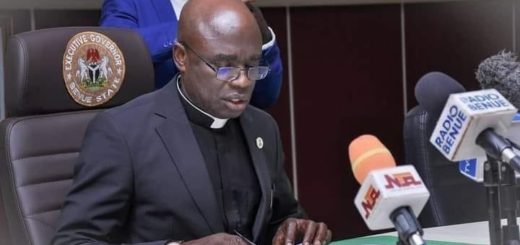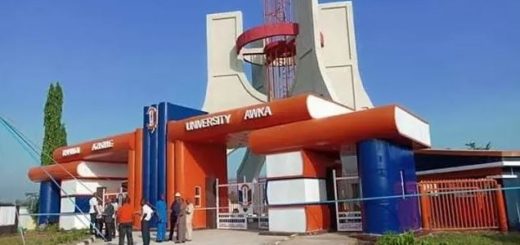Court Nullifies AEPB’s Demand Notices To NIPCO Plc, Affirms AMAC’s Authority In Sewage And Refuse Disposal
 Justice Olukayode Adeniyi of a High Court of the Federal Capital Territory FCT), has declared that the Abuja Environmental Protection Board (AEPB) does not have the legal powers to impose any levy or fine for sewage and refuse disposal on any corporate body within Abuja Municipal Area Council (AMAC).
Justice Olukayode Adeniyi of a High Court of the Federal Capital Territory FCT), has declared that the Abuja Environmental Protection Board (AEPB) does not have the legal powers to impose any levy or fine for sewage and refuse disposal on any corporate body within Abuja Municipal Area Council (AMAC).
Adeniyi, who made the declaration in a judgment he delivered, subsequently voided a total sum of N19 million the AEPB imposed on NIPCO Plc as levy on sewage and refuse disposal in the FCT.
The court premised its decision on the grounds that the AEPB Act conflicts with the duties and functions of AMAC in respect of sewage and refuse disposal levies and collections, adding that AMAC being a creation of the constitution is superior to AEPB, created by an Act of Parliament.
The claimant had dragged the Abuja agency to court, challenging the powers of the AEPB to demand payment for sewage and refuse disposal, from 2015 to 2021, which the claimant said had been “dutifully paid” to AMAC.
The claimant in the suit marked: CV/3493/2022, had asked the court to determine amongst others whether the defendant as a body created by an Act of the National Assembly, can validly perform the exact functions and exercise the powers conferred on the Abuja Municipal Area Council (AMAC) by Section (7) of the 1999 Constitution.
The claimant in arguing the suit had through its lawyer, Chief Paul Obi, raised two issues for determination.
The claimant’s counsel had submitted that AMAC, is the bona fide body empowered by the constitution for the collection of refuse and waste disposal levies, within the Abuja Municipal Area Council and not AEPB .
It said that as such, all the “demand notices” issued by AEPB to the claimant were invalid since the defendant lacked the legal competence to issue them ab initio.
He therefore urged the court to resolve the two issues in favour of the claimant and grant the reliefs sought.
On its part, the AEPB, represented by C.O Okoro, who raised a sole issue for determination, submitted that by virtue of paragraph 7, Part Ill of the Schedule to the Taxes and Levies (Approved List of Collection) Act, Laws of the Federation of Nigeria, 2004, Area Councils in the FCT) were statutorily imbued with the right to the collection of sewage and refuse disposal fees.
Okoro further contended that the Court of Appeal, Calabar Division, had nullified paragraph 7, Part Ill of the Schedule to the Taxes and Levies (Approved List of Collection) Act, Laws of the Federation of Nigeria, 2004, thereby, abrogating the rights of the Area Councils to collect sewage and refuse levies.
But Adeniyi in the judgment disagreed with the AEPB, stressing that: “By virtue of the provision of Part Il of the First Schedule to the Constitution, it is not in question that the Abuja Municipal is one of the constitutionally established Area Councils in the FCT.
“This point having been clearly made, it becomes apparent that by virtue of the provision of paragraph (1)(h) of the Fourth Schedule to the Constitution, it is the main functions of AMAC to make provision and maintenance of public conveniences, sewage and refuse disposal within the area constituting its territorial boundary of the Abuja Municipal Area. That is what the Constitution provides and I so hold”.
The judgment contained in a Certified True Copy (CTC) dated March 5, also held that with regards to the highlighted provisions of the Constitution, the National Assembly lacked the legislative vires to derogate or divest from the Constitution the main functions of the AMAC
It said it can’t even confer confer same on any other body, establishment or institution; regardless that that other body, establishment or institution, is a creation of statute made by the National Assembly itself.
“Even though the National Assembly is empowered to confer additional functions on the Area Councils within the FCT as envisaged by the provision of Section 7(5) of the Constitution (as amended), but cannot concurrently confer the functions the Constitution already preserved for the Area Councils on any other institution, let alone the AEPB, vide the AEPB Act,” the court said.
Adeniyi stated that despite the good intention for the enactment of the AEPB Act, its conflict with the Constitution, cannot, simply for reasons of its good motives, be recognised or enforced.
“In the final analysis, I hereby resolve the questions set down for determination in favour of the claimant. Accordingly, the claimant’s action succeeds. I hereby grant the reliefs claimed in the originating summons, save for reliefs (6) and (7) which are hereby refused.
Among others, the reliefs granted include: “A Declaration that AMAC is the only body constitutionally empowered and authorised to impose or levy sewage and refuse disposal levies or fines on any person or corporate body in Abuja Municipal Area Council FCT.
“A Declaration that the Demand Notices for the total sum of N19,400,553.36 imposed on the Plaintiff by the Defendant as sewage and refuse disposal levies on fines for the period 2015 to 2021 or for any period whatsoever are ultra vires the powers of the Defendants and they are therefore unconstitutional, null and void.”













